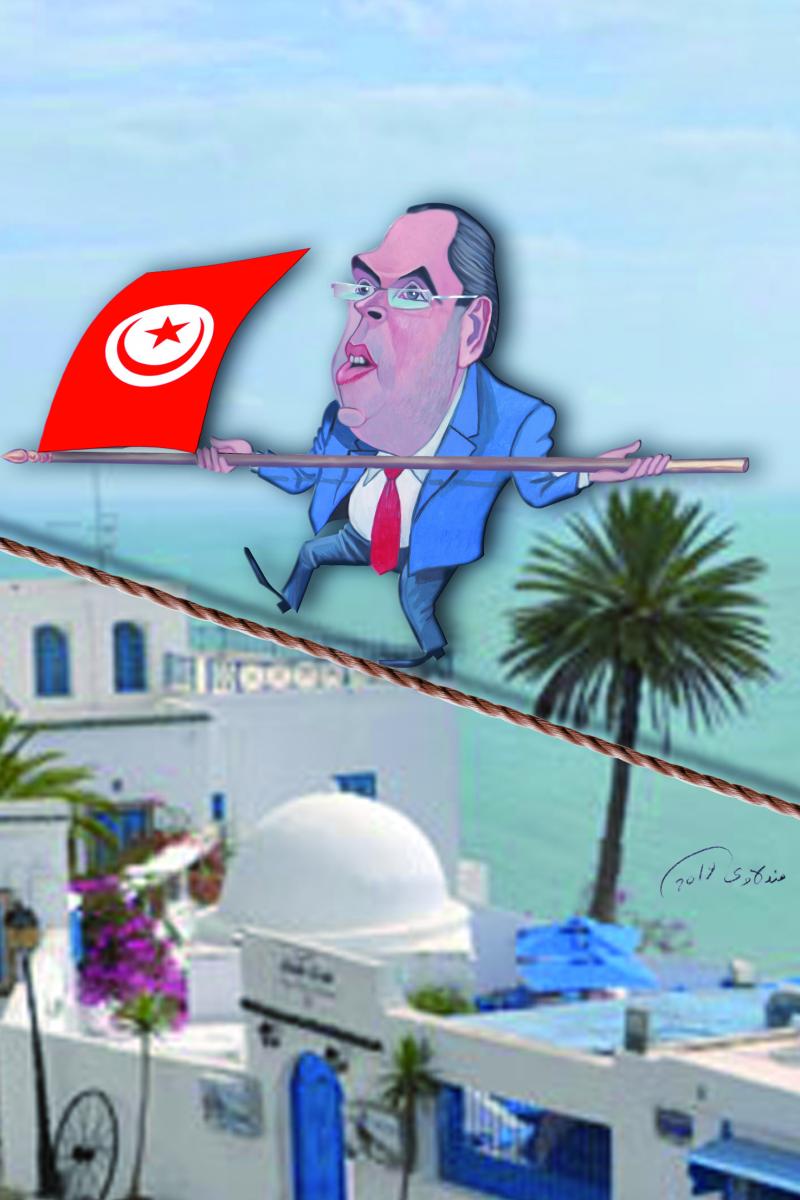
Youssef Chahed was born on Thursday 18 September 1975 in Tunis, Tunisia. He studied to become an agricultural engineer at the National Agricultural Institute of Tunisia, where he graduated as valedictorian in 1998. He then joined the Institute National Agronomique Paris-Grignon in France and graduated in 1999, obtaining a postgraduate diploma (DEA) in environmental economics and resource and in 2003 a PhD in Agricultural Economics under the direction of Jean-Christophe Bureau. Until 2009 he taught agricultural economics at the Higher Institute of Agriculture in France and in other countries as a visiting professor and has written many scientific reports and articles on public policies in the agricultural and agricultural production sectors in Tunisia.
Chahed’s political career began following the uprisings of 2011 when he founded, along with Slim Azzabi and Abdelaziz Belkhodja, the party Wifak Al Jomhouri. In 2012, the founders combined the party with two others to form Al Jomhouri, which Chahed left the following year to join Nidaa Tounes.
On 6 August 2016, after the prime minister Habib Essid overwhelmingly lost a confidence vote in parliament, Chahed was nominated by the Nidaa Tounes party to succeed him. On 26 August, his Government was approved by the Assembly of People's Representatives with 167 votes in favour out of 194 votes cast and was therefore appointed by the President of Tunisia, Beji Caid Essebsi, becoming the seventh head of government for the North African country has had since the 2011 overthrow of longtime leader Zine El-Abidine Ben Ali.
Following the death of President Essebsi in July, Chahed announced that he will take part in the country’s presidential elections that are scheduled to take place on September 15. Tahya Tounes (Long Live Tunisia) - which Chahed help found at the start of the year after falling out of grace with President Essebsi’s Nidaa Tounes - has become the second largest party in parliament behind Ennahdha. He faces competition from Abdelfattah Mourou of the Islamist-inspired Ennahdha party, former president Mancef Marzouki, controversial media magnate Nabil Karoui, former premier Mehdi Jomaa, and Defense Minister Abdelkarim Zbidi, among others.
Chahed has said he wants to “break with the old system and give hope to all Tunisians, including young people, that they can take on important positions in the state.” He has also said that Tunisia should press ahead with his government’s focus the economy and security if it is to “join the club of strong democracy.”
“We have to focus on the economy in order to give Tunisians prosperity and welfare, in order to give jobs for young Tunisians and in order to prepare for a new sustainable model of development in Tunisia.”
He said he would use his position as president to focus on security issues, bringing foreign investment and securing stronger EU support because of Tunisia’s place on the front line of the Mediterranean migration crisis. Chahed launched his overseas campaign in the French city of Lyon, casting himself as a human rights defender. Some 1.2 million Tunisians live overseas, mainly in Europe.







